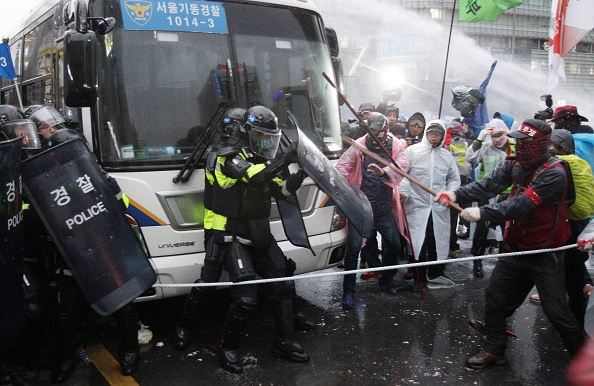United Nations Special Rapporteur Maina Kiai Investigates Possible Violations Of Freedom Of Speech In South Korea

The United Nations sent Special Rapporteur Maina Kiai to investigate the status of the freedom of speech in the country. He will be in the country for eight days starting Jan. 21 and is expected to relay the findings through a press conference on Jan. 29.
Korea Times reported that the rapporteur has already met a few people from the government such as Second Vice Foreign Minister Cho Tae Yul and representatives from groups advocating human rights, labor rights, disabled people and sexual minorities. He is also scheduled to meet more people from various departments in the administration.
This visit was allegedly requested by civic organizations citing the time of massive protests against the Park Geun Hye government that occurred in November last year. The police force were seen using tear gas and water cannons to disperse about 70,000 people, The Globe and Mail noted.
Kim Sung Soo, the spokesman of the country's main opposition party, suggested that the detainment of 51 people from the rallies and the use of tear gas were "excessively violent."
The rallies joined by students and various civic and trade unions were asking for the president to step down. The said protesters were fighting against Park Geun Hye's new economic policies where business owners are given permission to lay-off employees more freely. They also opposed the alleged attempt of the government to whitewash the country's past dictatorships by requiring students to use state-issued history books only.
The South Korean government has long been facing criticisms regarding its stand on free speech. A journal from Yonsei University noted that the freedom of speech outlined in the constitution is only being followed on paper. It went on to elaborate how the government controls the media, and mentioned that the number of online content barred by the Korean Communications and Standards Commission (KCSC) rose from "10,000 blocked or deleted websites/internet postings in 2008 to over 80,000 in 2013."



